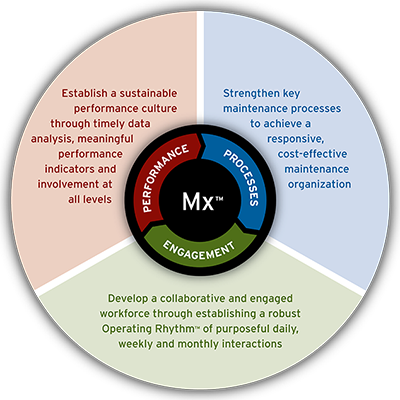By Scott McKenzie
WHAT IS THE PROBLEM?
Humans have natural biases which contradict effective maintenance practices. RLG’s methods directly address these to reduce poor maintenance practices. This is the second in a series of articles which will outline specific biases and how to systematically correct for them.
WHAT BIASES ARE WE TALKING ABOUT?
Studies by Behavioural Economists in recent years have highlighted many natural human biases in the areas of decision making and risk tolerance. There are more than 20 known biases. Last time, we spoke about the Availability Heuristic - when we equate facts with our ease of remembering. This time we will focus on another specific bias which directly impacts maintenance decision making and risk identification.
Issue Number 2 - The Confirmation Bias: We look for things which prove us right
People tend to notice and remember things which confirm their already-held beliefs. It is a protection mechanism against our fragile self-confidence. So, the consequence is that facts supporting a person’s already held view will get amplified, and those facts which contradict or disagree will be ignored or minimized.
For example, if you believe a risk to be high or significant, you will be able to remember easily times when this risk translated into a real consequence. This will be especially strong if you had an emotional connection to this memory. You are very liable to over-estimate the likelihood of this risk reoccurring, overestimate the severity if it was to occur, or both.
This bias has significant implications in maintenance:
- Any discussion about equipment failure risk is doomed to failure unless it is based upon facts or data which everyone agrees to use. Have you ever been in a discussion about risk which was based only upon people’s personal experience or judgement? They are a waste of time with misleading conclusions.
- The culture in which risk discussions are held are just as important as the data and facts used. To ignore this means that the person who argues the best will have their opinions and views promoted. Remember that just having data and facts available aren’t enough, as people will tend to magnify the facts which support their current beliefs and discount facts which don’t. People need to be educated about this bias as part of the preparations for the discussions.
WHAT CAN BE DONE?
RLG has a Maintenance Excellence (Mx™) program which reduces the impact of these (and other) effects which naturally occur in any workplace. Starting with a Maintenance Excellence Assessment, facts and data are used to objectively identify and prioritize opportunities. Behavioral biases, such as the Confirmation Bias, is raised as an issue and grounds for discussions are put in place to reduce this bias as much as practical. Further, a regular set up to openly discuss actual performance which is called an ‘Operating Rhythm’.
Our Operating Rhythm™ is specifically designed to bring data and facts into the daily conversation, and reduce disparities between Operations teams, Maintenance teams, Inspection Teams, shifts and rotations. We also increase engagement and involvement of people in problem solving based upon data and facts, and raise awareness about how human biases can get in the way of good maintenance practices. Our experts put in place systematic and structured routines to protect against these behavioral barriers to performance.
You can read more about setting up an Operating Rhythm™ in this recent article, or in this write-up and video site. You can read more about Maintenance Excellence™ here. Please reach out to us any time for more information or to talk about your situation.
